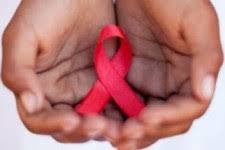Source: xinhuanet.com
NAIROBI, July 31 (Xinhua) — Jacqueline Wambui, a resident of Nairobi, Kenyan capital, has been living positively with HIV for several years now.
The member of National Empowerment Network of People Living with HIV and AIDS in Kenya (NEPHAK) has become an AIDS activist, with her work involving championing for the rights of HIV patients.
“I promote greater and meaningful involvement of people living with HIV in the national response to the disease,” she said in a recent interview.
Wambui, who runs the advocacy and communication program at NEPHAK, is able to do this because of easy access to generic anti-retroviral drugs, which have made her stronger.
She is among millions of people in Kenya and across Africa who are readily accessing the life-saving drugs thanks to innovative licensing agreements that allow production of the generic drugs.
The licenses have enabled generic drug manufacturers to produce and sell single and combination versions of the drugs for adults and children in countries with the highest burden of HIV like Kenya.
Leading the list of drugs whose generic versions are widely used across the world is Dolutegravir (DTG), which was first approved in the United States in 2013.
DTG is the latest anti-retroviral drug and it is being offered in Kenya for free by the government as a first line of treatment for HIV patients.
The drug by ViiV Healthcare, a pharmaceutical company specializing in the development of therapies for HIV infection, has 18 generic manufacturers, who are authorized to produce and sell low-cost single or fixed-dose combination versions of DTG in least developed, low-income, lower-middle income, and sub-Saharan Africa countries as well as some other upper middle-income countries, according to the global firm.
“These licensing agreements have also allowed generic manufacturers to include Dolutegravir in a newly developed fixed-dose combination, tenofovir disoproxil fumarate/lamivudine/dolutegravir, which combines the WHO-preferred treatment regimen into a single pill,” said Deborah Waterhouse, CEO of ViiV Healthcare.
The agreements between UN-backed public health organisation Medicines Patent Pool (MPP) and ViiV Healthcare were originally negotiated in 2014.
Since then, some 3.9 million people in the developing world have access to the HIV treatment dolutegravir, according to ViiV Healthcare.
Wambui was put on several different antiretroviral regimens before switching to DTG later.
“The new drug has much less side effects than the others and it comes in such a low dose, only 50 milligrams. I’m in my fourth month of treatment and I would say of course I am more hyper, I’m no longer lethargic, I no longer dread taking my pill at 10pm at night,” she said.
Using the life-saving drug has enabled her and millions of other people, especially women, to function well and move on with their lives that include doing business to feed their families.
“For a long time, I couldn’t just stand up and walk out of a seat because I had to wake up slowly. It was quite painful. But now my body has gotten used to it, and my bones are getting stiff,” she said.
The HIV activist noted that people living with HIV should be given the choice to take the drugs they want after learning of the associated risks and benefits of different regimens.
“Let people decide what is best for them. Also, sexual and reproductive care and counseling should be integrated in HIV settings,” she said.
Kenya’s fight against HIV/AIDS has been paying off, with the east African nation recording a sharp decline in number of infections in the last eight years.
HIV incidence among adults aged between 15 and 49 fell from 0.35 percent in 2010 to 0.19 percent in 2017 due to the scale-up of various prevention and treatment programs, according to the recently released Kenya HIV Estimates Report 2018 by the Ministry of Health.
According to Joint United Nations Programme on HIV/AIDS, the total number of adults and children living with HIV in Kenya is approximately 1.5 million.
From January 2012 to December 2018, MPP generic manufacturing partners have supplied 413,000 patients years of DTG treatment in Kenya, according to ViiV Healthcare.
Kenya targets to reduce new HIV infections among adults by 75 percent and cut mother-to-child transmission to 5 percent, notes the National AIDS Control Council.
